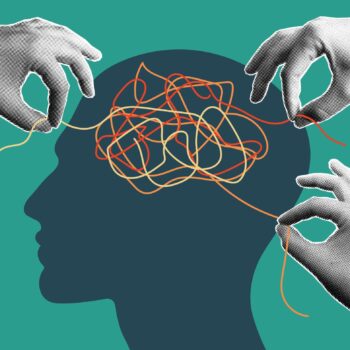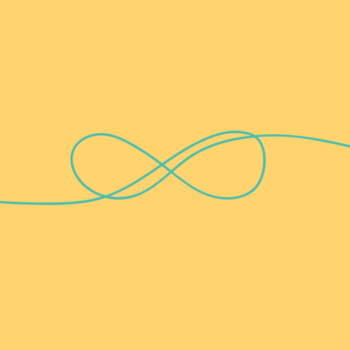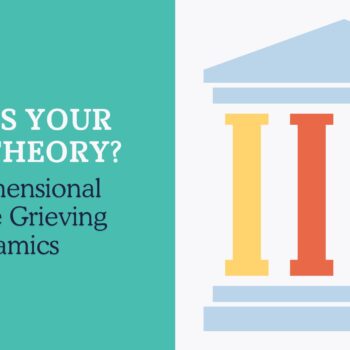Grief and Sobriety: Discovering Loss Amid Positive Change
/ General : Eleanor Haley
Though it may sound odd to some, a person's connection to a substance can parallel a real-life relationship in many ways. Relationships with drugs and alcohol can feel like a complex mix of good and bad, as the substance(s) begins to meet specific needs and comes to occupy different spaces in our lives. This being the case, one's experience with drugs or alcohol can feel intensely personal.
In this article, I'm going to share some of my experiences with grief and sobriety, as well as a few general ways that we've observed grief coming up for people who've chosen sobriety and recovery. But my experience is singular and can't perfectly describe anyone else's, and even our general observations won't come close to encapsulating the many ways people experience grief in recovery. So, we invite anyone who would like to add their thoughts and experiences to share in the comments below.
My Experience with Grief and Sobriety
I had my first sip of alcohol the summer before starting high school. I'm not sure what pushed me to step over that forbidden edge. My friends and I had already broken the rules by sneaking out of the house after my friend's parents fell asleep, so maybe I figured I'd throw all caution to the wind. And if I'm being honest, I liked it. It quieted my typically too-loud social anxiety and made things less boring.
I started drinking to have fun. I never looked at it as anything more than that. Not even in college when, in hindsight, drinking was clearly a crutch. I was miserable and homesick and struggled to make genuine friends. Suddenly, I was drinking more than ever, surrounded by strangers in unfamiliar places. I wasn't really having fun, and I wasn't really safe. Still, the subtle difference between recreational and problematic drinking was invisible to me, and it remained invisible until well into adulthood.
To be honest, I'd always naively assumed I would grow out of the desire to drink. I figured maturity and responsibility would dampen the appeal of blurry nights and hangovers that lasted well into the morning. What I didn't realize, because my parents didn't drink, is that many adults also drink a lot. Ultimately, the only thing that shifted as I got older, got married, and had kids was that I no longer drank in bars but instead drank at home and friends' houses.
The Decision to Quit
Whether my drinking habits would technically be categorized as "problematic," I'm not sure. However, I eventually reached the point where my alcohol consumption felt subjectively upsetting to me. I regularly promised myself in the morning that I wouldn't drink that day, only to open a bottle of wine come evening. And I would wake up the following day, feeling physically sick and mentally and emotionally bad, and start the process over again.
Though we often think about people having to quit substances because they clearly have a "problem," for a lot of people, the need to quit feels subtle and grey. For example, they might find that the substance is getting in the way of living life in the way they'd like. Perhaps they feel like a distracted parent, fight more with their partner when they're drinking, or have a hard time being productive the next day because they're hungover. Regardless, the decision to quit a substance is often a personal one. So if you drink and don't consider it a problem, this is a no-judgment zone.
But as for me, I was distressed by the disconnect between how I wanted to live and how I was living for a long time before I found the will to quit. Actually, it wasn't until I had no choice but to stop when I found out I was unexpectedly pregnant in my late 30s that I was able to get out of the cycle. And because I still don't trust myself not to slip back into the exact same patterns, I haven't had a drop since.
Positive Change Can Cause Loss
Not drinking, for me, was, and still is, the right decision, but that doesn't mean it's always felt net-positive. When someone makes a positive change, people tend to disregard and denigrate the past they are changing away from. The "bad" relationship, "bad" habit, or "bad" way of living was miserable or destructive enough to propel you to change, so they assume there couldn't be anything about that life to miss or grieve. But that's not at all the case.
Getting sober is not just a small change for some people; it's an ongoing struggle and an entire shift in their way of being. Their lifestyle, friends, identity, coping skills, etc—all these things have to change. And there can be a lot of loss in this change, even if you believe it's good for you.
The things that feel different and that you grieve will ultimately be unique to your situation. Your past relationship with the substance itself and the function it served in your life and relationships is a significant factor. Though we can't describe each person's specific situation, there are a few general reasons why getting sober can cause grief that we'll discuss below.
Why Does Getting Sober Cause Grief?
Your entire life may feel altered:
Though your whole life might not have centered around drinking or drugs, there were likely specific people, places, events, and rituals you associated with them. Giving up the substance ultimately means having to give up pieces of your life. Where you may have previously been motivated to obtain and use a substance, you are now trying (most of the time) to abstain. And you may find that you must distance yourself from things you associate with using the substance or eliminate them entirely.
This can be a sad change for many people. Just because you realize the substance is harmful doesn't mean you suddenly don't like or miss anything associated with it. The corner bar might have felt like home, and your drinking buddies might have been real friends. Distancing yourself from people, places, and things can make a person feel lost, out of place, and many other emotions.
Even your identity may feel lost to some extent and you may wonder things like -- "What do my evenings or weekends look like now?" "What do I do for fun?" "Who is safe to spend time with?" "Will people want to be around me now that I'm sober?" "Who am I now that I don't drink?" "Why does everyone still think I'm the person I used to be?" or "Why can't people accept that I've changed?"
You lose friends and family:
Many friend groups have shared values, hobbies, and lifestyles, so when a person makes a lifestyle change, they often lose friends in the process. People reluctantly give up people all the time because they know they're not good for them, but this can mean letting go of people you like, appreciate, and value -- maybe even people you were extremely close with like family or intimate partners.
Alternatively, you may hope to keep your friends but find it more challenging than you thought. Perhaps you don't feel like you fit in. Or you worry that people no longer think you're "fun" or want to spend time with you. You may also notice that you have nothing in common with your friends without the substance. Or that spending time around them is too much of a risk to your sobriety.
Regardless of why the relationship ends, you may mourn for friendships that no longer work in your present life and miss the sense of belonging that came with being a part of the group.
You miss how it made you feel and lose a coping skill
Ultimately, when you break up with a substance and resolve to leave it behind, you may miss the "good times" and how it made you feel. Usually, when someone uses a substance regularly, it begins to meet emotional and physical needs. For example, it may have made you feel less alone, bored, anxious, or eased physical or emotional pain.
Without the substance, unpleasant feelings return, and you are without a quick and easy go-to coping tool. Ultimately, using a substance to meet needs and to cope with distressing experiences creates a cycle of avoidance. When you have a quick fix like a substance, you are never forced to find constructive tools for dealing with difficult human experiences. And at the same time, you must use more and more of the substance to continue to avoid pain.
This being a grief website, it feels relevant to mention one reason many people use substances is to numb the pain of grief. And when the substance is no longer present, they may find that grief over their past losses feels more tender and acute. People may also experience grief over things they think they lost while using substances, like time, health, or relationships.
One of the most challenging parts about getting sober is that you must face people, emotions, and experiences without the substance and find new ways to engage with life. This isn't easy and may cause a person to long for the ease of using the substance to feel better.
Final Words on Grief and Sobriety
Many people are surprised when they encounter grief on their recovery journey and wonder - is this normal? It's important to remember that even positive change can cause loss. Whenever we experience loss, we may struggle to know how to exist in the world and how to view ourselves and others.
These complicated feelings are part of the process. They are not a sign that we should turn back but rather an indication that we need to lean on our support and constructive coping. Unfortunately, coping with these experiences is beyond the scope of this already lengthy article. However, this website is dedicated to exploring grief and coping skills of all kinds. We encourage you to look around the site or contact us if you need any specific resource recommendations.
Unfortunately, tools for coping with grief and sobriety is beyond the scope of this (already lengthy) article. However, this website is dedicated to exploring grief and coping skills of all kinds. We encourage you to look around the site, or try these articles to get you started:





Robin B May 8, 2024 at 1:51 pm
Hi, I enjoyed this article regarding grief and sobriety. I am 61yr old and 4.5 years sober. My journey is a bit different. I lost my 25 yr old son to suicide in July 2019. He was my drinking buddy. (we were both alcoholics, although I didn’t know it at the time)
Your article refers to grief of the life we leave behind once we are sober. I often think of the people, places and events that I enjoyed while drinking, but can honestly say, my life now is so much better than I could have ever imagined, other than not having my son here to experience it with me. I’ve come to a realization that my son had to die for me to get sober. It took me years to be able to say that out loud. I felt selfish saying it. I know I would not be where I am right now if he hadn’t passed away. My marriage was ready to end after he passed, primarily due to my daily drinking. We just celebrated 30yrs in December.
A year and a half after getting sober and losing my son, my husband and then 25yr old daughter moved out of state. The thought of staying in the house that I raised both of my children in and living in a town where a lot of people knew me and/or my son, was torcher. I needed a place where no one knew me and my circumstances. We all love where we now live, in Maine. I have continued my sobriety journey with all new sober friends. My son’s spirit visits us often here, we get signs all of the time, like lights turning on and off or the kitchen faucet turning on! (we built the house, so we know its not haunted with other peoples spirits!)
As time has gone on, I have learned to put on a happy face, and sometimes I am genuinely happy. Most times though, I could burst into tears at any moment when I think of him.
Having to face my grief while sober has been hard. I now have to face those feelings I used to drown out in alcohol. I belong to AA and I can honestly say, the fellowship within AA saved my life. I wanted to take my own life in the beginning of my sober journey. The women surrounded me and supported me through the most difficult time of my life. I could not have survived without the love and tools I have learned in AA.
Mother’s Day, actually the entire month of May, is difficult for me. My son’s birthday is May 26 and my birthday is May 16. Not having him with us to celebrate, will never get easier.
I try to live an honest life now and help other mothers who may have experienced losing a child. All I have to give is my experience, love and an ear to listen to them.
Grief is a daily feeling, but it gets softer as time goes on.
Thank you
Robin in Maine